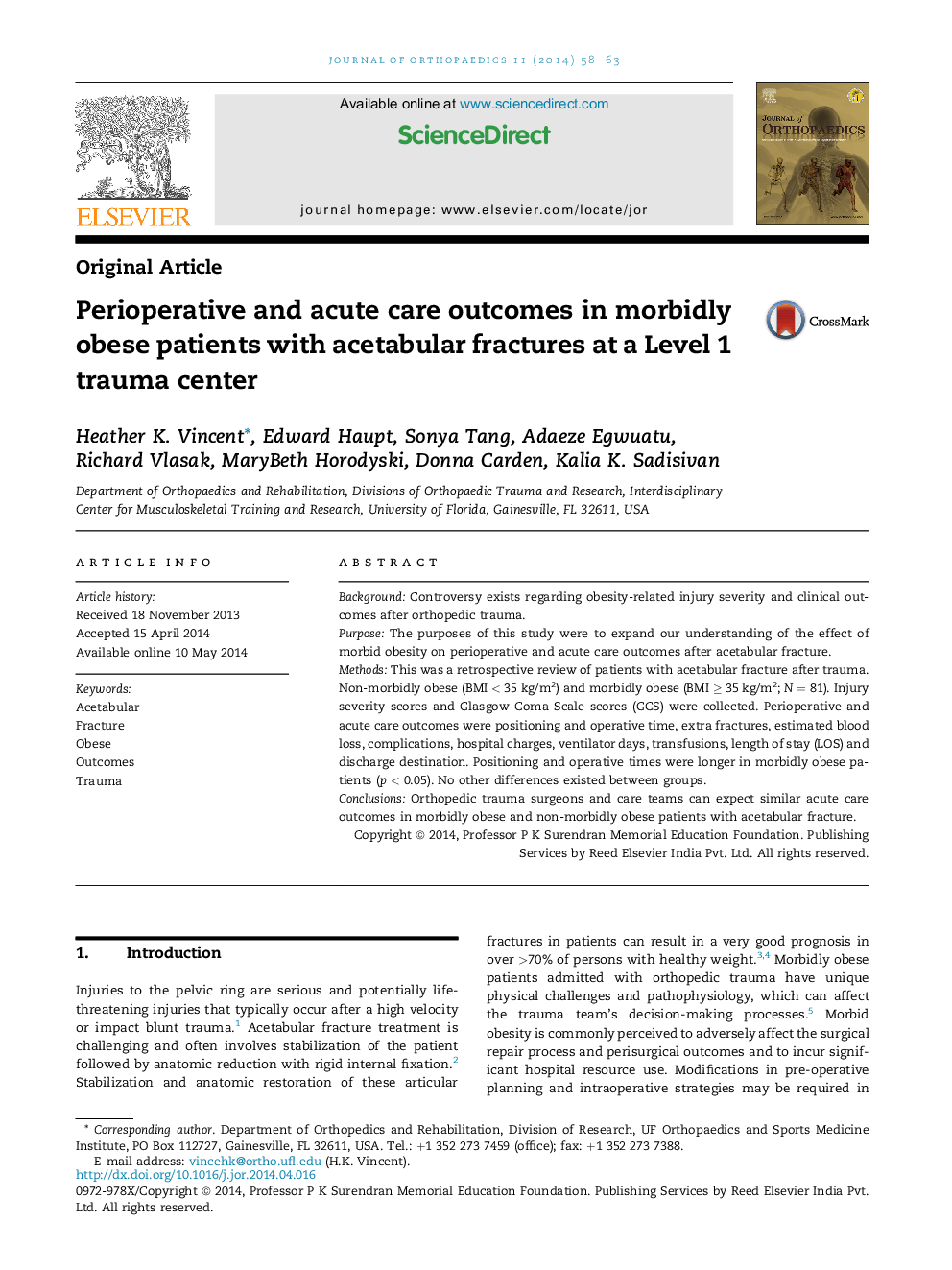| Article ID | Journal | Published Year | Pages | File Type |
|---|---|---|---|---|
| 3251873 | Journal of Orthopaedics | 2014 | 6 Pages |
BackgroundControversy exists regarding obesity-related injury severity and clinical outcomes after orthopedic trauma.PurposeThe purposes of this study were to expand our understanding of the effect of morbid obesity on perioperative and acute care outcomes after acetabular fracture.MethodsThis was a retrospective review of patients with acetabular fracture after trauma. Non-morbidly obese (BMI < 35 kg/m2) and morbidly obese (BMI ≥ 35 kg/m2; N = 81). Injury severity scores and Glasgow Coma Scale scores (GCS) were collected. Perioperative and acute care outcomes were positioning and operative time, extra fractures, estimated blood loss, complications, hospital charges, ventilator days, transfusions, length of stay (LOS) and discharge destination. Positioning and operative times were longer in morbidly obese patients (p < 0.05). No other differences existed between groups.ConclusionsOrthopedic trauma surgeons and care teams can expect similar acute care outcomes in morbidly obese and non-morbidly obese patients with acetabular fracture.
